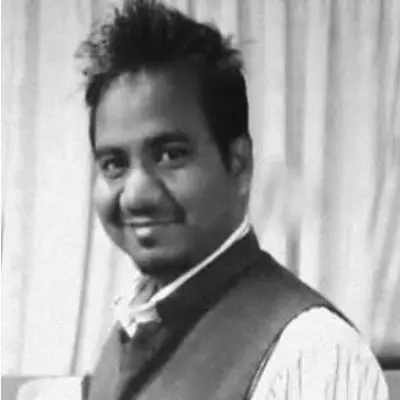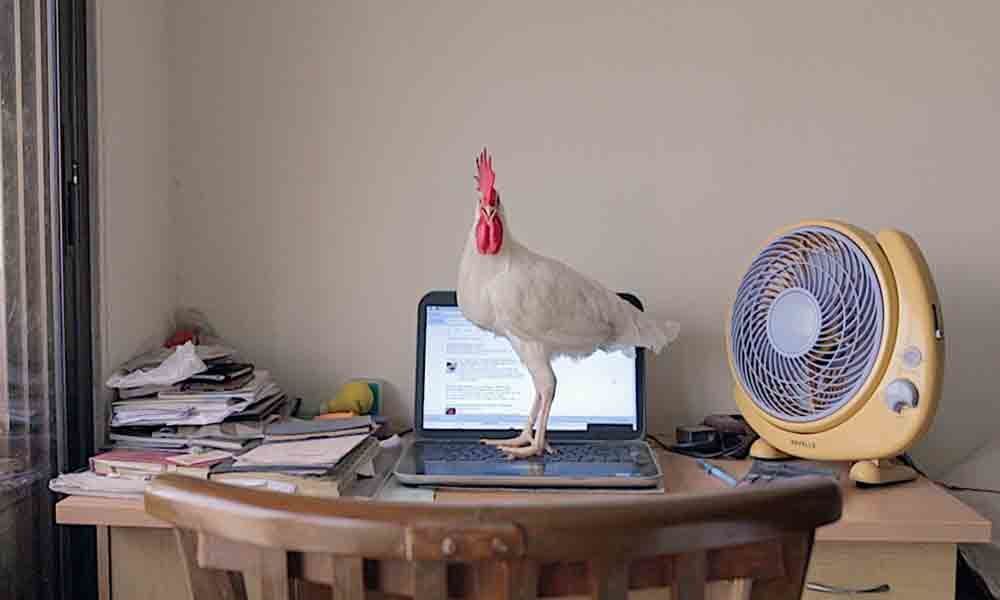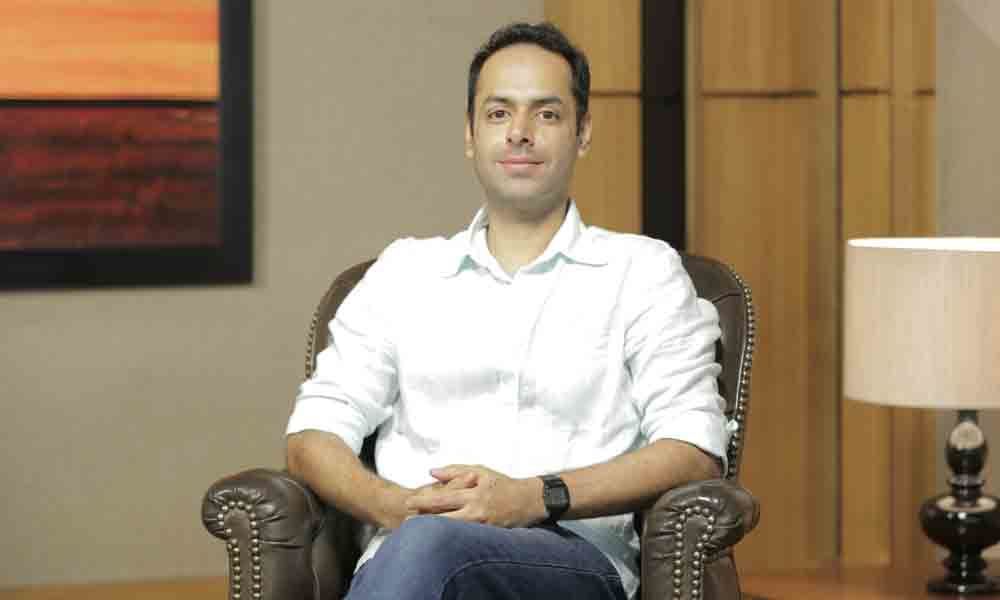Live
- Sandhya Theater Stampede Incident: Rahul Ramakrishna Retracts Comments on Issue
- Garena Free Fire MAX Redeem Codes for December 2024: Unlock Skins, Weapons, and More
- Dr. Ponguleti Sudhakar Reddy Welcomes Union Minister Piyush Goyal in Bengaluru
- Why Christmas is Celebrated on December 25: The Link to Roman Festivals
- Tributes paid to G Venkataswamy (Kaka)
- Amit Shah should quit; demand MP, MLA
- Hike in support price brings cheer to coconut farmers
- Apple's Face ID Smart Doorbell Could Unlock Doors by Late 2025
- Amit Shah must tender apology
- Govt’s focus on rural and tribal health: Minister Damodar
Just In
Having a rooster as a pet in a tiny apartment in Mumbai surely comes across absurd, however, the Bharde family raised a rooster, who was bought as a pet for the cats.
The rooster defied all odds and grew to be a full-blown alpha rooster in the family. 'Tungrus' is a short documentary about the Bhardes and their rogue pet chicken.
Produced and directed by Rishi Chandna, the film has been screened at 80+ film festivals and it has won 10 awards. Having won the Grand Jury prize at the Slamdance Film Festival this year, 'Tungrus' is now an Oscar-qualifying film.
"I am figuring out our Oscar campaign plan in the run-up to 2020. It's a long shot but we want to give it a good chance," Rishi shares.
Rishi is an independent filmmaker based out of Mumbai, and 'Tungrus' is his first film. "I am a self-trained filmmaker, who has learnt by watching films and reading books on cinema.
I've always been interested in exploring the anomalies and absurdities that lie beneath the surface of everyday life through films," he says.
Excerpts from an interview:
How did you know about the Bharde family raising a rooster?
We got really lucky with finding this story, or rather with this story finding us. My co-producer, Ritika Ranjan, was working in the same office as the younger son in the film, Sameer Bharde, and they were friends and colleagues. One day over lunch, he brought up the situation at home with the chicken and with his dad wanting to eat it. They'd had the chicken for 6 months already by then. She met me the same day and it came up as casual conversation. I was immediately keen to meet them and see if they would want to work with me on telling the story. Sameer was already on board and he did most of the convincing of his parents before I first met them.
What was the idea behind making this docu-short?
There was a sense early on that this was a very dramatic and absurd situation for any family to be in. I knew we'd found something unique in the subject matter itself, which if, told in the least melodramatic tonality would have the greatest connect with the viewer. We set out keeping that in mind, and of course, many things evolved and developed during production as well. 'Tungrus' is less a story about a chicken than it is about the people around him because we use animals as reflections of human consciousness. We see that play out in this film; through their pet chicken, as each family member probes the nature of affection, loyalty and even the ethics of eating another creature. When it comes to animals, where do we draw the line between food and family? Can you eat your own pet? The answer is more complicated than we might think.
How was it to film a rogue rooster? Were there any interesting moments?
The biggest challenge while making 'Tungrus' was working with an animal – the rooster. Because animals are voiceless creatures, they cannot express fully the stress and anxiety they may be feeling with a film crew around. So, we worked with a small crew, quietly and patiently, anticipating his actions and hoping to bag some good moments. For example, we didn't know that there was a chicken shop visible from outside their living room window, where the chicken would spend some time each day, and where Mr Bharde would actually buy his chicken from. These were revelations to us, and each day of shoot only added to our confidence in the story. Another day my cinematographer came running to me while I was in the living room talking with Mr Bharde, screaming with excitement, "we just got poop on camera!".
How many days did it take to make the film?
We shot for 4-5 days over a month and the other 3-4 months of post-production after which I started submitting it to festivals.
What was the family's reaction after watching the film and how are they handling their newfound fame?
They are an intelligent progressive family and it didn't take them long to understand and trust me that I would tell their story in a creative documentary that would be worth remembering. Today, they laugh each time they see the film because they see that the real charm of this film is the subtly varying levels of affection each of them has towards the chicken. They are also very grounded, and so fame hasn't shaken up their lives. They live as before, and maybe they will adopt a rooster one day, again.
Before commencing the shoot did you know the fate of the rooster?
I knew that the family was divided over the fate of the rooster, with the father wanting to eat him while the sons were not comfortable with that. But only on the last day of the shoot did it become clear where this was going to go finally.
How did you choose to tackle such a sensitive issue as a farm animal being used as a pet for possible consumption later on?
I grew up in a city, in a meat-eating family, where we ate chicken at least thrice a week. So, I never thought of chickens as pets, the way we think of dogs and cats as pets. It was always an animal meant for consumption, without any guilt or remorse.
Who would have thought that the chicken, a staple food for the millions of households and restaurants in a country of a billion people, could become an agonising inconvenience for an ordinary family in this city? And yet, problematic as his presence was, he became part of their household, as a pet.
But what we perceive as pet and food depends totally on our conditioning and cultural identity. If you have grown up in a rural environment, it is perfectly natural to raise poultry, pigs, cattle etc, as 'pets', and to slaughter them for food when the time is right. This is a natural way of living in the country.
In 'Tungrus', I wanted to approach this issue without taking sides, by letting all members of the family speak for themselves.
What are your future projects?
I am developing my next project, which will be a feature-length fiction film that talks about the intoxicating impact of excessive wealth on the human spirit.

© 2024 Hyderabad Media House Limited/The Hans India. All rights reserved. Powered by hocalwire.com









